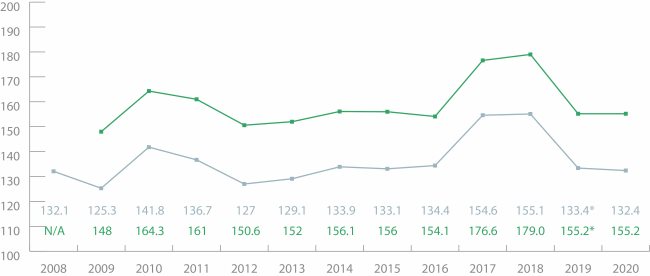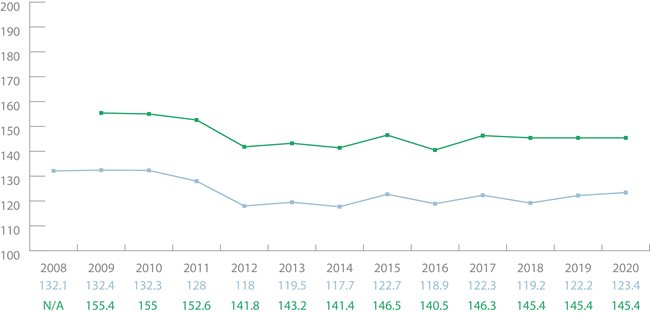Energy Efficiency
Reducing the carbon dioxide emissions associated with the production of concrete and its constituent materials can be achieved by improving energy efficiency and reducing consumption. The indicator (kWh/tonne) also referred to as ‘energy intensity’ reports energy consumption during the manufacture of concrete products added to proportional contributions from each of the constituent materials. This is effectively a measure of the average embodied energy of all concrete produced (by the Sustainable Concrete Forum members).
Performance indicator: Energy used in production as a proportion of production output (kWh/tonne)


In 2020, the energy intensity figure for the Rolling mix is 132.4 kWh/t.
The figure for concrete and reinforcement is 155.2 kWh/t.
To provide an indicator that more accurately reflects the performance of the industry, energy intensity is now also shown as a baseline or standardised mix. This shows the energy intensity per year, based on the concrete mix of the 2008 baseline year.
Performance indicator: Energy used in production as a proportion of production output - Standardised mix (kWh/tonne)


In 2020, the energy intensity figure for the Standardised mix is 123.4 kWh/t.
The figure for concrete and reinforcement is 145.4 kWh/t.
The energy efficiency indicator is part of the 2020 strategy commitment to: Contribute to the delivery of a low carbon built environment. Read more